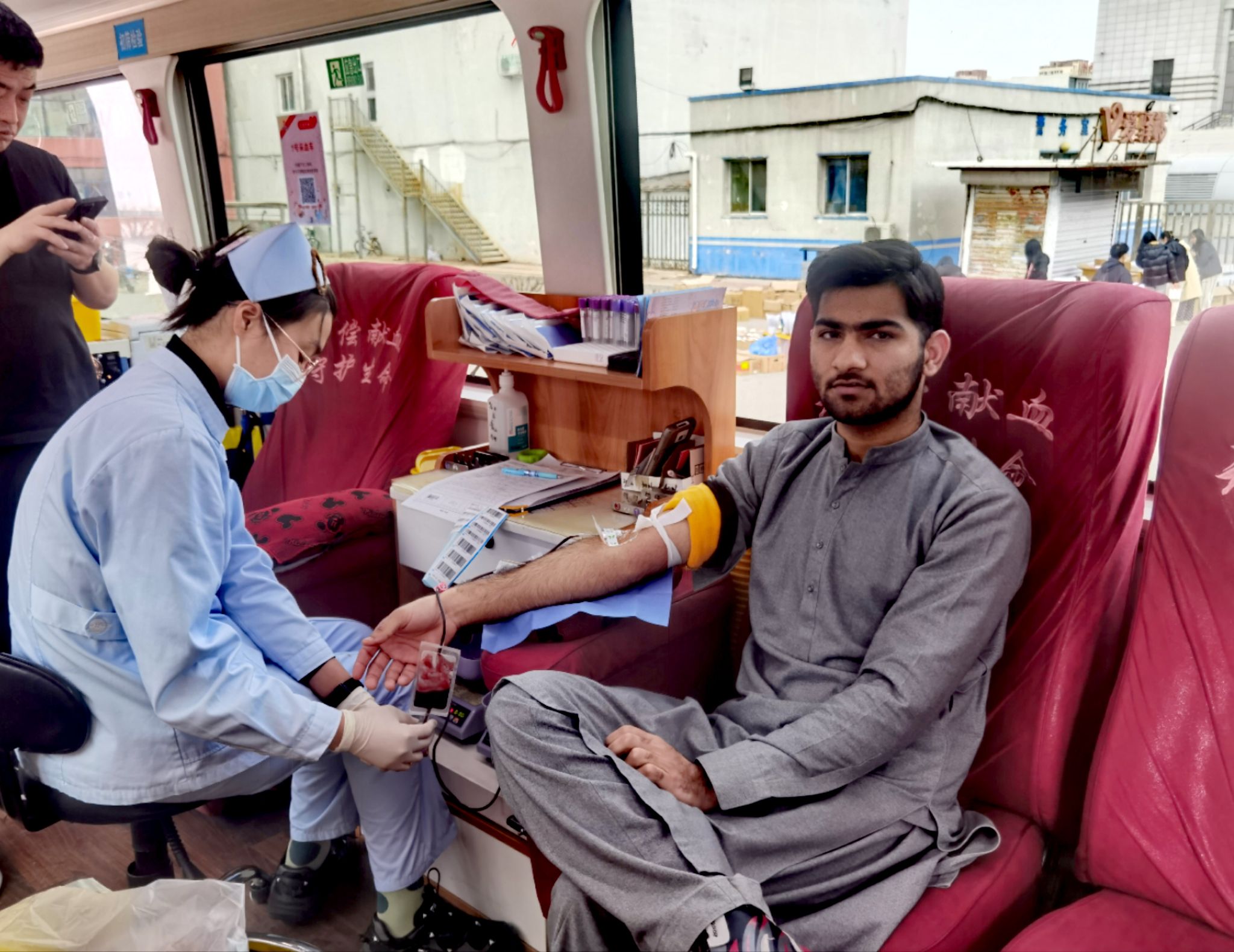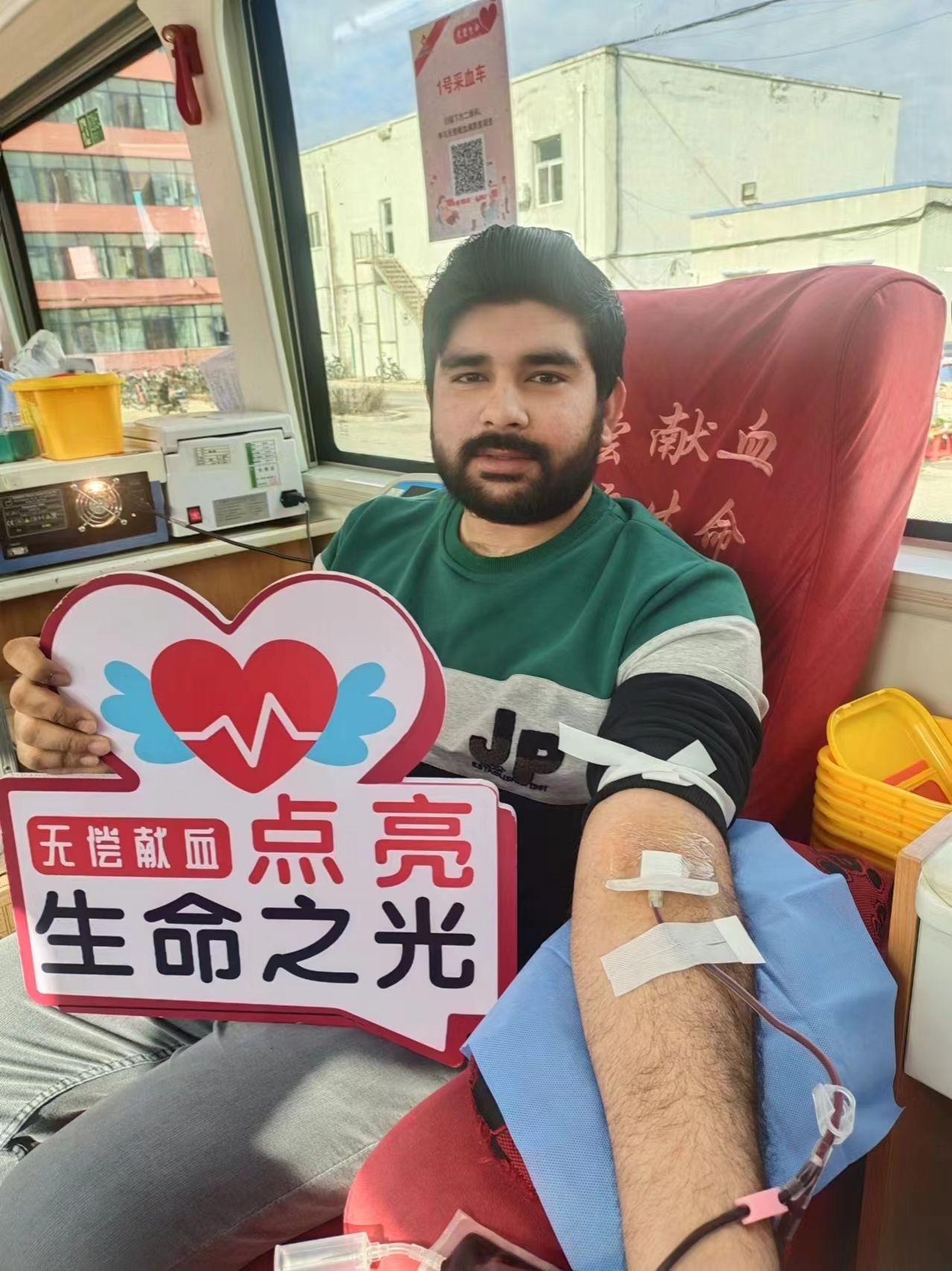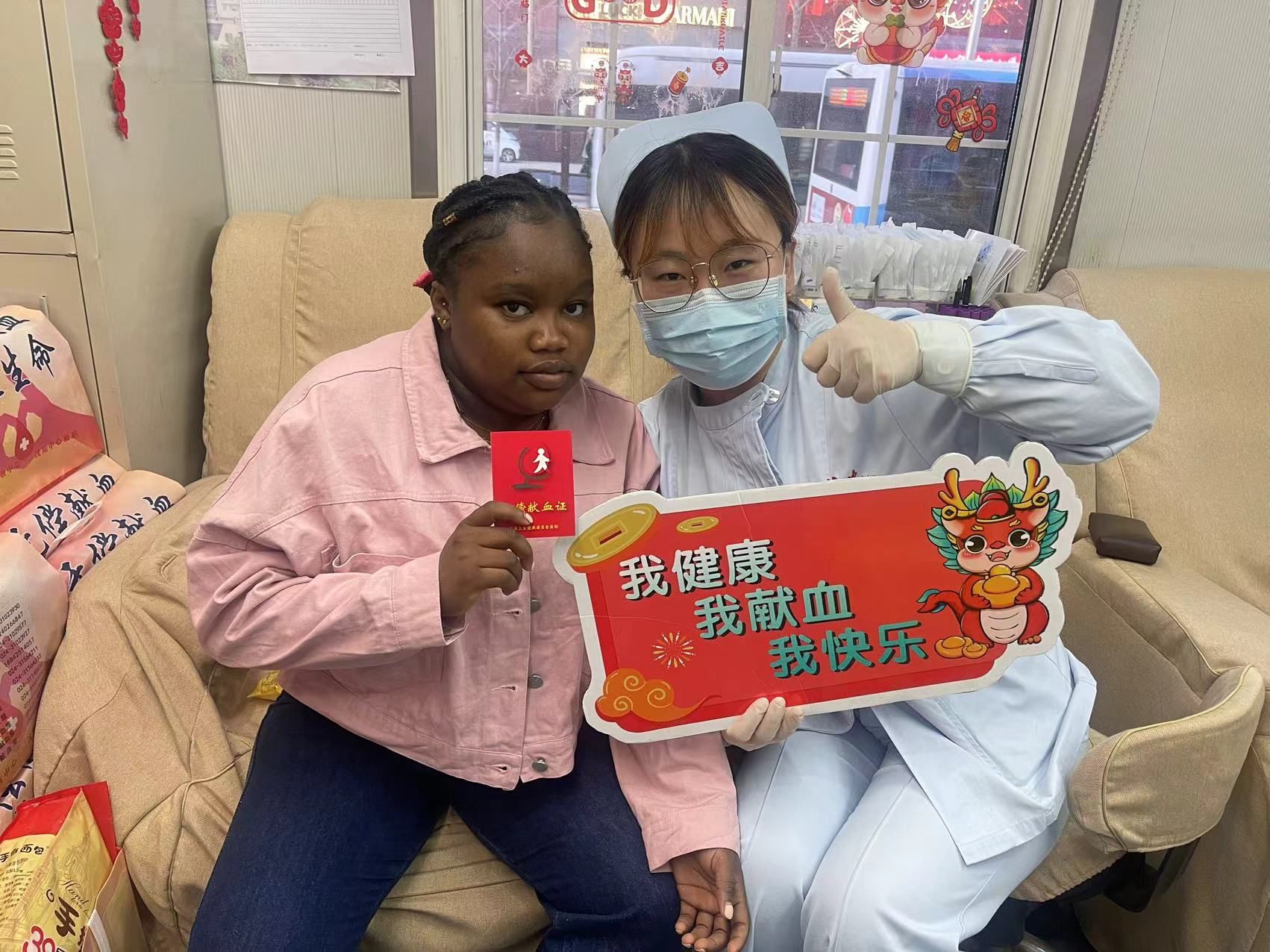On March 31, a patient with severe anemia in Shenyang was in urgent need of blood transfusion, yet the patient was a rare blood type Fya-negative individual. Given that the proportion of Fya-negative in the local population is merely approximately 0.3%, the Liaoning Provincial Blood Center has carried out dozens of difficult blood cross-matching procedures for this patient but failed to locate compatible blood. Simultaneously, upon searching the rare blood type database, no blood donors of the same type were identified. The situation is extremely critical. The patient urgently requires a blood transfusion to salvage his life. Since the proportion of Fya-negative is approximately 90% among black people and around 30% among white people, the Shenyang Central Blood Station issued an urgent appeal, hoping that colleges and universities in Shenyang can mobilize international students in China to actively participate in unpaid blood donation to rescue the patient's life.
Upon receiving the notice from the school's Youth League Committee, the School of International Education immediately issued a notice to all international students on campus, calling on them, especially those whose blood types matched the patient's, to enthusiastically donate blood. Fei You, a student from Class 1, Grade 2021 from Pakistan, contacted the teacher immediately after learning about the situation, stating that his blood type matched the patient's and that he was willing to donate blood. On the campus blood donation vehicle, after registering his information, undergoing an initial blood screening, and answering questions such as "no history of illness," "in good health," and "third-time blood donor," the doctor informed him that he could voluntarily donate 200, 300, or 400 milliliters of blood. Without hesitation, Fei You replied, "I'll donate 400 milliliters," and rolled up his sleeve. When the medical staff on the scene learned that Fei You was voluntarily donating the maximum amount of blood during the Ramadan period, they couldn't help but express their admiration for him. Although his blood type did not match the rare blood type required this time, Yun Fan, another Pakistani student from Grade 2021, also proactively came to the campus blood donation vehicle and donated 400 milliliters of blood, hoping that this transnational flow of warm blood could help those in need.


Bani, a girl from Nigeria who is currently interning at the affiliated central hospital and is about to graduate. When she received the blood donation initiative in the class group, she was seeing off a friend at Shenyang Station. After a hasty farewell to her friend, she immediately contacted the teacher and asked about blood donation. She said that she met the blood type requirements and was willing to take the subway back to school immediately to donate blood. Through communication and coordination between our school and the blood station, Bani came to the nearby Taiyuan Street Loving Blood Donation House and bravely and firmly extended her arm to donate 400 milliliters of blood. Bani said that she would take this blood donation as a gift to the Chinese people and the people of Shenyang before leaving China near graduation. She hoped that she could be successfully matched and contribute to the life safety of patients before officially becoming a doctor.

It is reported that a total of 15 international students from four colleges and universities, including our school, have successfully donated blood on this occasion. The Shenyang Central Blood Station is conducting specimen testing and matching experiments in accordance with the procedures. Since the commencement of education for international students in China, the international students of our school have participated in rare blood type blood donation activities on multiple occasions. Through their practical actions, they have manifested their sense of social responsibility as medical students and their profound sentiment towards Shenyang, China, their second hometown. They have earnestly implemented the oath of medical students that "health is entrusted and lives are relied on".